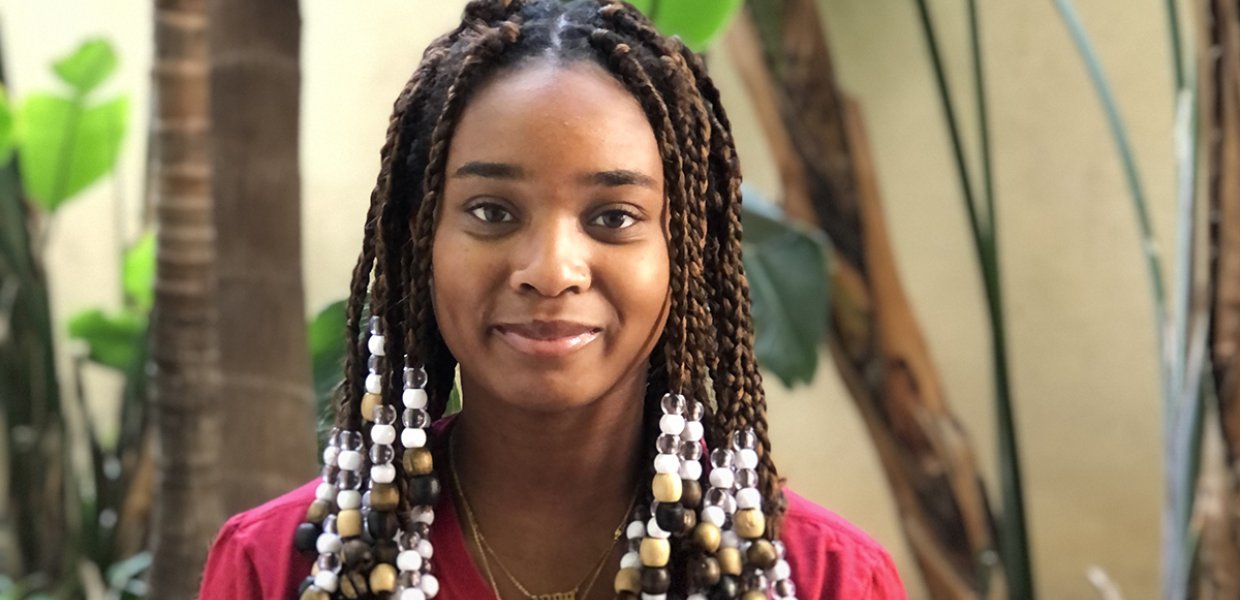Gabrielle Chenault got into journalism because she wanted to tell impactful stories about underrepresented communities. She got her first chance to do just that on a big stage a bit earlier than she expected.
After graduating from Hampton University in Virginia, the Queens, New York native spent this past summer as a Facebook Historically Black College or University (HBCU) News fellow at the Los Angeles Times, serving on the audience engagement team and handling social media.
While there, Chenault heard from a friend that another, smaller HBCU was at risk of being shut down due to the school’s bleak financial report.
Having experienced firsthand the consequences of the low funding HBCUs often receive, Chenault felt moved to speak out on the issue — but she knew that pitching an op-ed to the L.A. Times would be quite different from proposing stories to her campus newspaper. Even though she “felt nervous” about the process, Chenault reached out to a colleague to ask the best way to pitch her idea to the editor. Bolstered by the advice that “the worst they can say is ‘No,’” Chenault met with the op-ed editor. On Aug. 9, the L.A. Times published her column, which called for donor and government support for these universities that “have given generations of Black men and women a space to flourish and better serve their communities.”
“It was a really amazing experience seeing all my ideas come together and then finally publishing the article and seeing staff members, interns and students at other HBCUs retweet it saying, ‘I thought it was just my school,’ or ‘It’s amazing that you’re writing about this so more people can understand what our schools are going through,’” Chenault said.
Having joined USC Annenberg’s master’s program in specialized journalism in the Fall, Chenault hopes to build on this early-career breakthrough and continue advocating for underrepresented communities. “I’m hoping to tell stories about people who don’t often see themselves in news — or if they do, it's in a negative light, so I hope to change that narrative as well,” she said.
Chenault says that USC Annenberg’s specialized program in social justice drew her to the school. In addition to exploring issues of race and equity, she also wants to pursue international reporting inspired by her parents' work in the Peace Corps in Senegal.
This semester, Chenault is also taking advantage of the social media skills she developed at the L.A. Times, serving as a social media editor for the USC women’s basketball team. As a former Division I track athlete, Chenault said she was particularly excited for the opportunity to stay connected to athletics.
“In the social media world, you have to learn how to promote yourself and your content while doing so in minimal words,” Chenault said. “It transitioned into my writing, too, and has allowed me to write better articles that are shorter and straight to the point, which I think ultimately reaches more people.”
As she explores social justice issues in the classroom, she hopes to emerge from the program ready to continue pursuing those stories professionally. Noting the increase in major activist movements in the past two years — and growing coverage of those movements in the media — Chenault said she believes newsrooms are making strides to keep up with coverage but noted that there are still significant changes that need to be made in the journalism industry.
“A lot of these older publications are creating these positions and increasing coverage on these issues at the last minute and they’re still working out the kinks,” Chenault said. “We’re seeing a lot of activism, and we might see new movements spring up so, as journalists, I think it’s really great that USC has this program to train us on how to handle and navigate these issues and report effectively to help legacy news organizations be better.”
